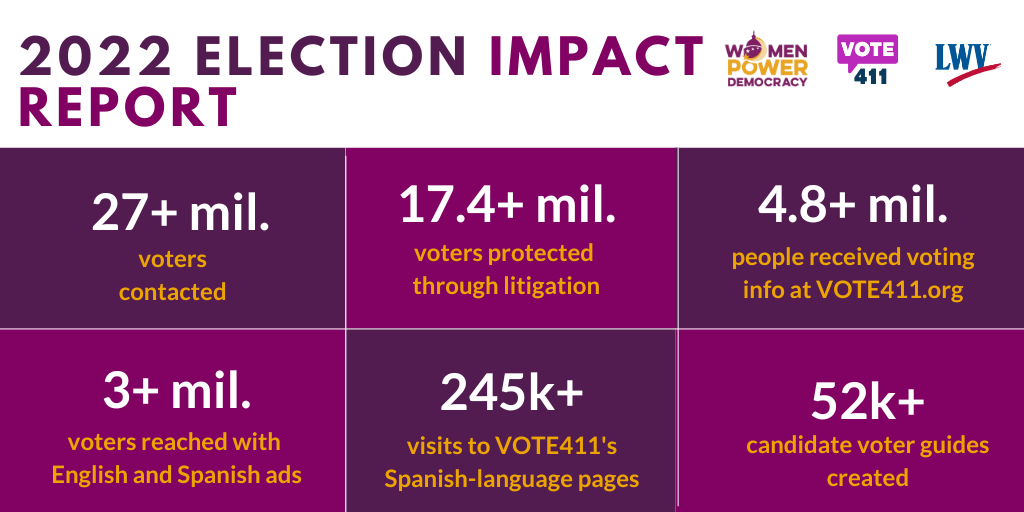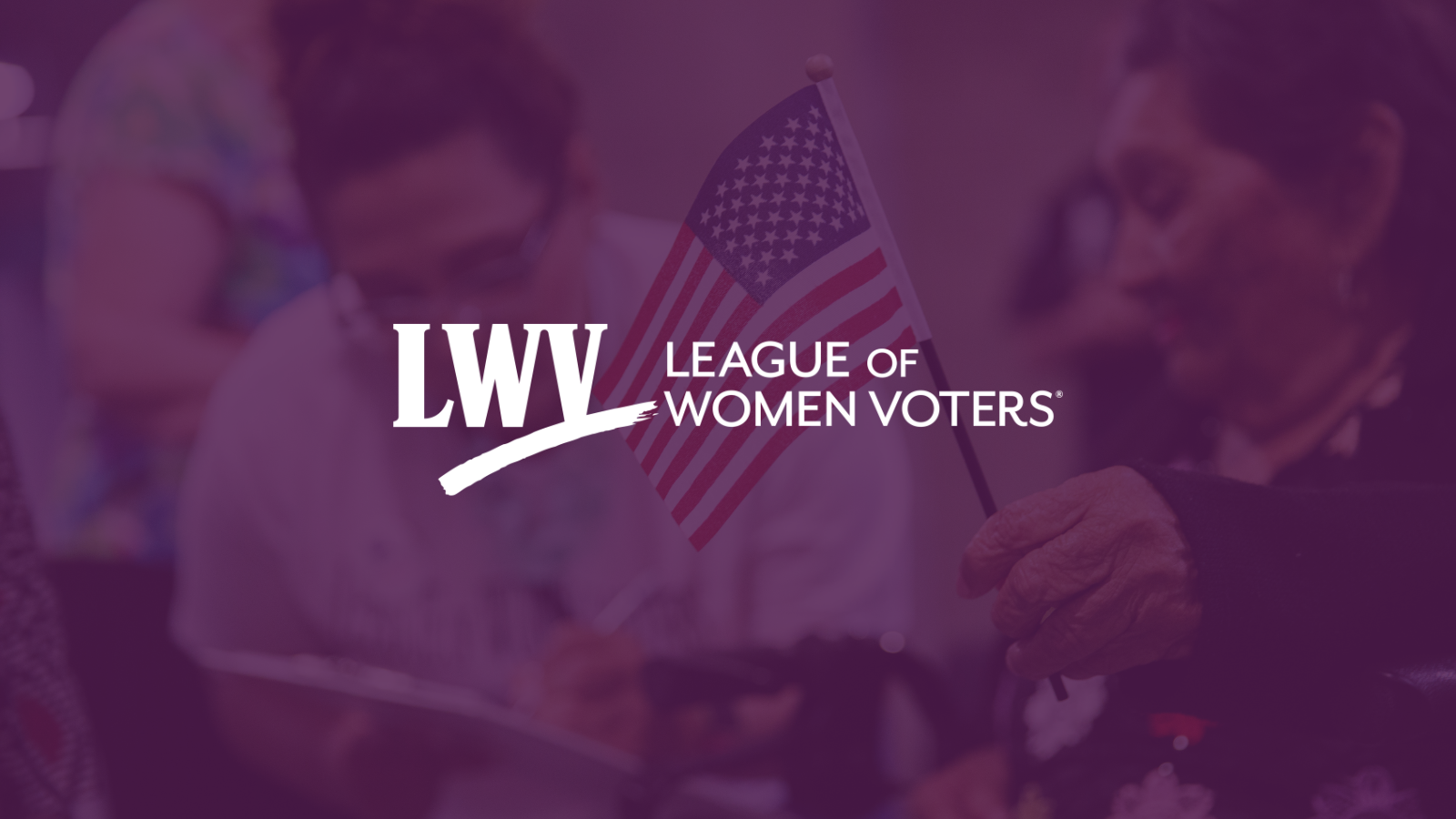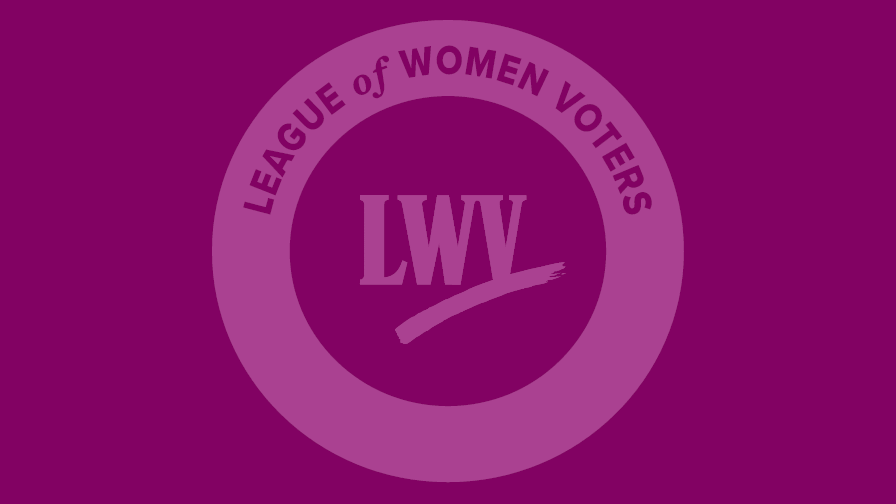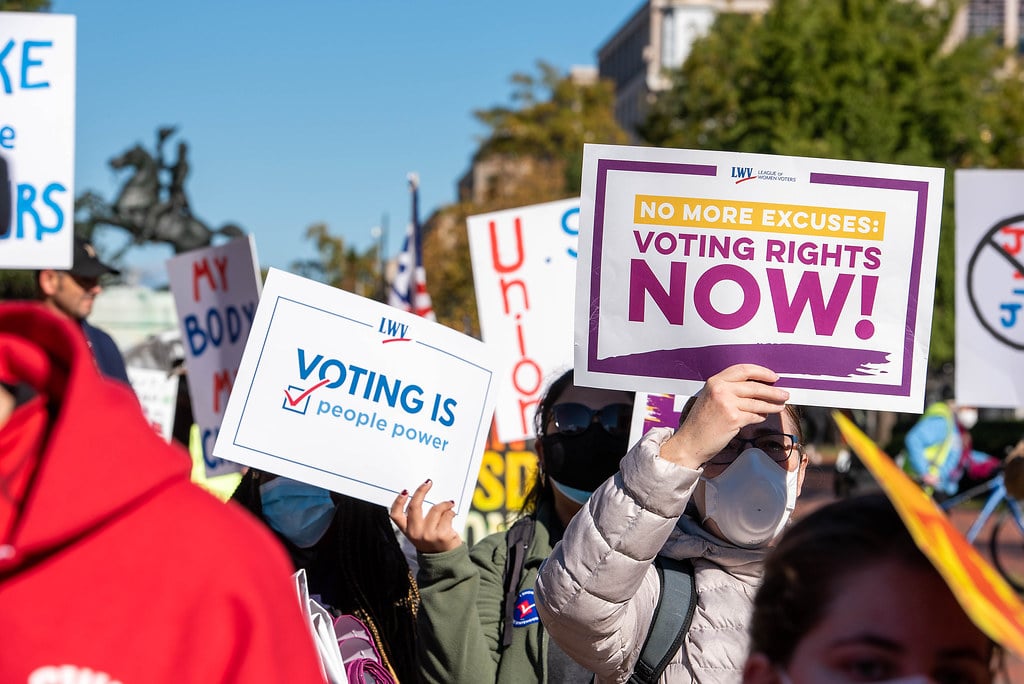
Fighting Voter Suppression
Fighting Voter Suppression
We protect every American’s right to vote, challenging those who seek to restrict Black, brown, female, disabled, and other Americans from making their voices heard in our democracy.
Why It Matters
Voter suppression is any attempt to prevent or discourage certain Americans from registering to vote or casting their ballot. These measures often target specific groups based on race, ethnicity, political affiliation, age, or other aspects of voters’ identities. The most widely used forms of voter suppression include discriminatory voter ID and proof-of-citizenship restrictions, reduced polling place hours in communities of color, the elimination of early voting opportunities, and illegal purges of voters from the rolls.
Historically, voter suppression has overwhelmingly targeted Black Americans. After the Civil War, Black men were able to participate in elections once the 15th Amendment to the US Constitution was adopted in 1870, which states:
“The right of citizens of the United States to vote shall not be denied or abridged by the United States, or by any State, on account of race, color, or previous condition of servitude.”
Voter suppression in southern states raged in the form of laws to prevent poor and Black voters from participating in elections. These laws, known as Jim Crow laws, included poll taxes and literacy tests. Many of these voter suppression strategies remained in place until the 1965 passage of the Voting Rights Act.
In 2013, the US Supreme Court removed key protections of the Voting Rights Act in the decision of Shelby v. Holder. Since then, a surge of anti-voter bills have swept across our nation– with many being legalized.
The League will not stand for this.
Example: Georgia
In response to an unprecedented number of voters (particularly Black and brown voters) participating in the 2020 election, and a historic, party-flipping Senatorial election, Georgian officials signed a bill, SB 202, into law that reduced the number of ballot boxes in communities of color, limited voting hours, added additional voter ID requirements, and made it illegal to provide those waiting in line with food or water, among other measures.
The provisions in SB 202 would not only eliminate Georgia’s growth in voter participation, but would take voting rights backward in the state, particularly for voters of color, who were directly targeted by the bill. The League of Women Voters of Georgia joined partners, including the Georgia NAACP and the Lower Muskogee Creek Tribe, in filing a lawsuit to prevent enforcement of the law.
Example: Texas
In 2021, Texas legislators passed bills limiting citizens' capacity to vote and expanding protection for partisan “poll watchers.” Partisan poll watchers are volunteers deployed by major parties to observe the voting and vote counting processes. Many people consider the presence of poll watchers to be a form of voter intimidation.
In addition to granting poll watchers new access, protection, and power, the bills limited mail-in voting and early voting hours and restricted in-person voter assistance for people with disabilities or those requiring support in the voting process. The bills inspired half of Texas’s legislature to flee to DC to block their passage; despite efforts to block these provisions, the voter suppressing bills were signed into law.
Support the fight for everyone's freedom to vote.
What We're Doing
Legal Work
The League is at the forefront of the most important federal and state cases across the United States. Our legal team works tirelessly to oppose all forms of voter suppression, including:
-
Discriminatory voter ID laws;
-
Attacks on voter registration;
-
Last-minute Election Day barriers;
-
The elimination of voting locations in underserved communities;
-
Unjust voter purges; and
-
Attempts to limit access to early and mail-in voting.
Advocating to End Voter Suppression
We support legislation that empowers Americans to participate in the voting process. These include:
-
The Washington, DC Admission Act: Over 700,000 DC residents pay taxes, are eligible for the military draft, and contribute to our nation and their community the same as residents of every other state, yet they are without full representation in Congress. The majority of these Americans are people of color. We support full statehood and representation for the people of DC.
Take Action
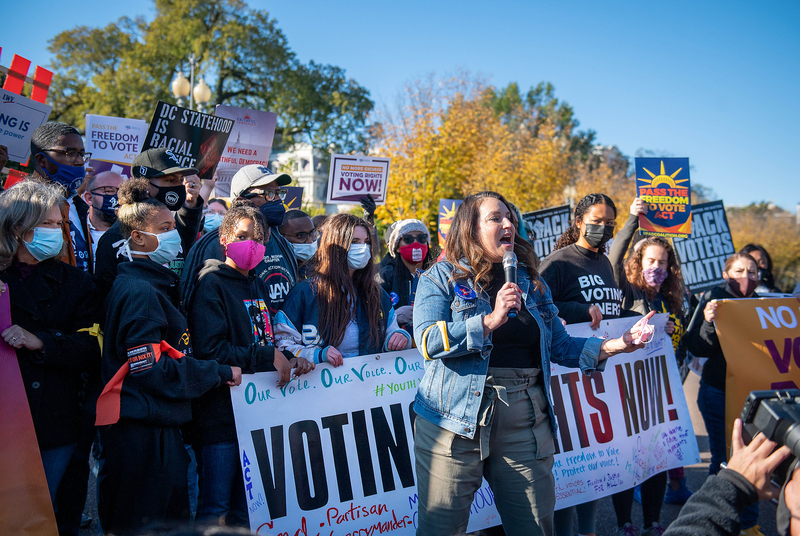
-
Urge your representatives to fight voter discrimination, reach across the aisle, and pass pro-voter legislation
-
Sign up for our email list and/or digital organizing app to stay updated on breaking news and ways to take action
-
Spread the word about voter suppression by sharing this page with your friends and family on social media
In 2023, Leagues across the US worked diligently to achieve a remarkable number of wins in litigation, voter registration, civic engagement and education, and more. Below are 6 of our greatest accomplishments.
JACKSON, Miss. — The League of Women Voters of the US, the League of Women Voters of Mississippi, the Mississippi Center for Justice, One Voice, Mississippi Votes, Mississippi State Conference of the NAACP, Black Voters Matter, Mississippi Poor People’s Campaign, Reaching and Educating for Community Hope (RECH) Foundation, Strong Arms of Mississippi, Mississippi Prison Reform Coalition, People’s Advocacy Institute, and the NAACP Legal Defense & Educational Fund, filed an amicus brief late Wednesday in Hopkins v. Watson, urging the US Court of Appeals for the Fifth Circuit to declare Mississippi’s lifetime felony disenfranchisement law — Section 241 — cruel and unusual punishment in violation of the Eighth Amendment to the US Constitution. The groups are represented by pro bono attorneys Matthew Sloan, Lauren Aguiar, Shaud Tavakoli, Daniel Bleiberg, Andrew Karp, and Kathleen Shelton.
This story was originally published in Mississippi Today.
A coalition of civic and legal organizations on Thursday called for the Hinds County Election Commission to provide clear answers to voters on why numerous voting precincts in the state’s most populous county ran out of ballots during the Nov. 7 election.
The group, which includes organizations like Mississippi Votes and the League of Women Voters, told the media that some of the consortium’s representatives have attempted to schedule a meeting with the election commissioners, but the county rejected that request.
Stay Updated
Keep up with our work to end voters suppression.
Donate and support our work
to empower voters






